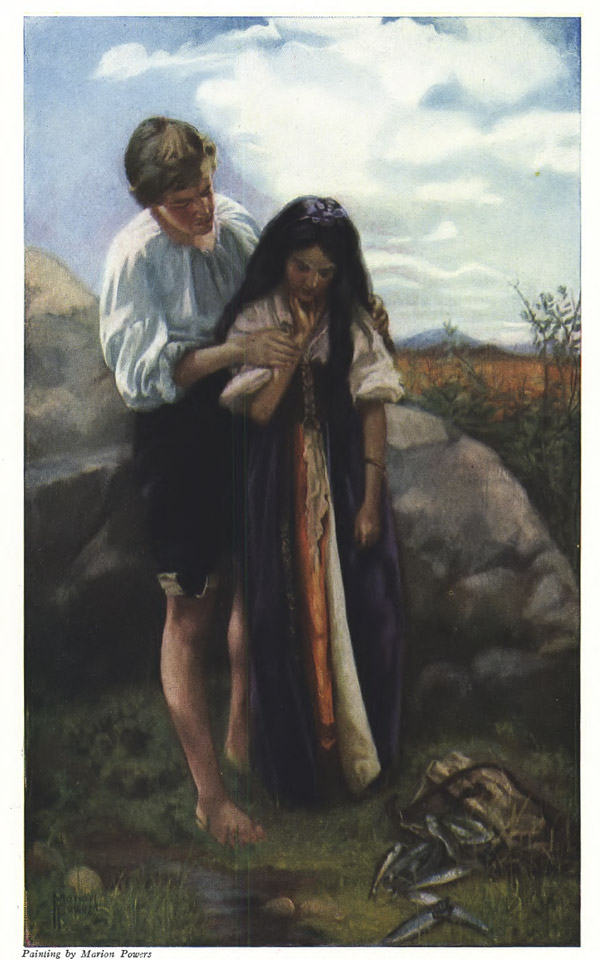
To read The Kreutzer Sonata after one has read the diaries of both Sophia and Leo Tolstoy is to realize two things simultaneously: one, the story line (except for the murder) is very nearly a transcript of daily life inside the Tolstoy marriage; two, the marriage itself is something that Dostoevsky more easily than Tolstoy might have written. In Tolstoy’s writing we have characters who, at once in thrall to both inner limitation and the force of circumstance, are placed on a landscape of world-and-self that steadily widens and deepens. In Dostoevsky we have these same characters living so completely inside their own heads that the world narrows down to the claustrophobic and the surreal. The Tolstoys, in the flesh, could not live out the “Tolstoy” within themselves. Equipped with all the external privilege necessary to live an open, expansive life, they were nonetheless driven to live as though Dostoevsky was making them up. The “happily ever after” of marriage had done them in. —“The Ancient Dream,” Vivian Gornick, Boston Review
Can Tang be brought out of the Space Age and into the Era of the Consumer?
turn down that damn enviro-chip-bag!
not about the midterms: compassionate Neanderthalism
What we have in the place of collaboration is the shattering loneliness of Juárez. In the 1990s, when young women began to disappear from the poorest shantytowns in the city, and then turned up like so much waste matter, bruised, raped, mutilated, and dead, police officers laughed in the faces of the distraught parents who appealed to them for help. Reporting on the story, I stood one afternoon on a gray hill covered in gray dust above a gray squatter settlement and looked across the river at the faux-adobe office buildings of El Paso. Around me the tumbleweed jittered in the breeze, and plastic supermarket bags and odds and ends of clothing fluttered everywhere, as if all the trash in all of Mexico had beached itself at this spot. A few hundred yards downhill lived the sister of one of the disappeared girls, and for all the outreach by NGOs and solidarity groups concerned with the murders, she seemed as isolated and vulnerable as it was possible for a young woman to be. —“The Murderers of Mexico,” Alma Guillermoprieto, The New York Review of Books
First rule of what to f_cking do in Saigon is don’t seek advice from an ironic website;
beware the toasted skin syndrome, computer geeks;
in pursuit of the proper American cyberterrorism slogan
You’ve been traveling all over the world for decades. How is it that you have no sense of direction?
that’s a great question — one that i frequently ask myself. i think i was born with the gift of being directionally challenged. my instinct is pretty much always to go the way that is opposite of the way i should be going. and this has served me extremely well professionally. when you get lost — when you, essentially, always go the opposite direction from the way you should — all kinds of marvelous and illuminating adventures ensue.
Such as?
one of my most magical experiences of this kind occurred in cairo. i set out to explore the city by walking, as i do every city i visit. i was headed, i thought, for a particular neighborhood that had a number of touristy attractions, but apparently i kept making the wrong turn, because as i walked, i went ever deeper and deeper into a maze of ever narrower and narrower streets. i saw all kinds of everyday, working-class shops and houses i probably wouldn’t have seen on my planned excursion. eventually i ended up walking down an alley lined with down-and-out people looking covetously at my watch. the alley got so narrow that i was literally stepping over their legs in some places. clearly i was lost and i thought that i was headed for big trouble. but then, just when i was beginning to get desperate, a young boy materialized and wordlessly took my hand. he turned me around and walked me out of the maze and into ever broader and broader streets, until he deposited me in a main square. i looked around and realized that i recognized where i was. then i turned back to thank him. in that instant, he had melted away into the crowd. —“Q&A: Don George—On Getting Lost (and Staying Lost)” interview by Matt Gross, The Minor Glories


